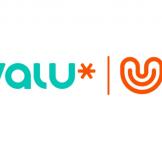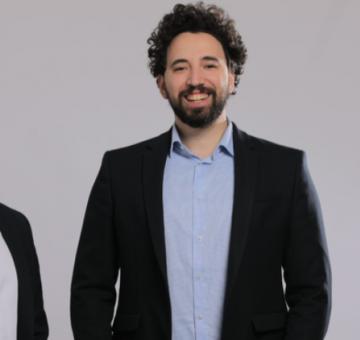Pigeonly's Fredrick Huston: An Unexpected Innovator

Photo Credits: Designswan
This article was first published in Innovation Excellence
I had the opportunity to meet Frederick Hutson at the Collision Conference in Las Vegas. During an event full of world-class startups, speakers and investors, one of the most innovative people in the room was from one of the most unlikely places of all.
Hutson is a serial entrepreneur and founder of Pigeonly, a leading startup in the field of VOIP (Voice Over IP) communications. The fact that Pigeonly has raised $3 million in funding and recently joined the prestigious Y Combinator program is not that unusual. The fact that Hutson served a four-year federal prison sentence for drug trafficking is.
Pigeonly’s products serve prison inmates, their family and loved ones. Telepigeon significantly lowers the cost of prison phone calls and Fotopigeon makes it easy to send photo lab quality printed photos to inmates, right from your phone.
It was unexpected to meet Hutson and hear about his success, but it should not be a surprise. The people in prison are “highly entrepreneurial minded,” he said. “They understand the basics of business. How to buy a product and how to sell a product.” In fact, Hutson notes that prisons are a natural pool of entrepreneurs. Much like in his case involving the sale of drugs, the business model was just wrong. “You got the product wrong, the goal was wrong, but if you can apply that same drive and bottom line principles to something positive then now you have a viable business.”
Hutson’s story of success also offered several innovation lessons that any business can apply:
Focus
Hutson had plenty of time in prison, but he still had to be disciplined to think about new developments. “My creative outlet is thinking of ideas,” said Hutson. To hone his skills and pass the time, he would find problems and then think of ways to solve them. He encouraged others to focus and find time to simply think. Hutson left prison with a “pile of business plans” based on his time spent problem solving.
Share Your Ideas
“Prison is a reflection of the outside, but in a smaller scale,” said Hutson. Inmates tend to gravitate to like-minded individuals and Hutson benefitted from a group that was hungry to learn. He had the ability to bounce ideas off “all sorts of people.” There were white-collared guys that were experts at trading, guys that knew insurance and many different experiences running a business. Hutson was able to create a “powerful environment” that allowed him to hone his ideas. What people are you sharing your ideas with? Do you meet regularly with like-minded individuals? Does that group include a variety of disciplines and industry backgrounds? Every would-be innovator should build this type of opportunity for themselves.
Pay Attention to Problems
Inmates want to connect with loved ones, but there are only a couple of companies that handle the vast majority of communications in and out of prisons because messages need to be carefully screened. This means that prisoners — who are already vulnerable and often lower-income — get gouged. Three hundred minutes can cost as much as $70. Hutson understood this pain point, because he experienced it. Pay attention to the problems in your day to day life. Pigeonly solved a problem “that nobody knew existed.” What other underserved areas are ripe for new solutions?
Your Background is Your Qualification
“The problems we’re solving, folks in Silicon Valley can’t solve.” Hutson’s background uniquely qualified him to build a business that nobody else understood. What are you uniquely qualified to deliver to the world? We all have different backgrounds, different experiences and different skills. Much like Frederick Hutson, everyone is capable of being a unique expert for solving a problem in the world.
Problems, Not Trends
“Don’t follow the trends, follow the problems,” said Hutson. Pigeonly focused on a real problem that Hutson understood and was able to solve. There is “value in going where nobody else is going” and “working on something nobody else is paying attention to.”
Focus on the Consumer
Hutson strives to keep Pigeonly’s focus on his customers. “We have thousands of people that need our product and rely on us every day. We want to focus on our customer needs… the families, the loved ones.” There is value in understanding your customer better than anyone else can.
Good Business
Pigeonly is admittedly a business focused on a social problem as much as it is on profit, but Hutson never questioned setting the company up as a for-profit organization. “Profit and doing good are not mutually exclusive. You have a lot more leverage to build what the user needs in a for-profit model.”
Customers Matter
Because of Pigeonly’s success, Hutson is often asked how he convinced investors to back his ideas. “The easiest way to convince someone that what you’re working on matters is to have paying customers.” This is a valuable lesson for both startups and established businesses. Provide true solutions for unmet needs in the marketplace, and support will come.
Frederick Hutson is not the usual innovator. He didn’t follow current trends, but instead chose to solve a problem he experienced firsthand and knew was underserved. He didn’t focus on raising money, but instead focused on building the best products for his customers. He didn’t share the same background as other tech entrepreneurs, but this is what enabled him to solve different problems that nobody else was solving.






































































EgyptInnovate site is not responsible for the content of the comments